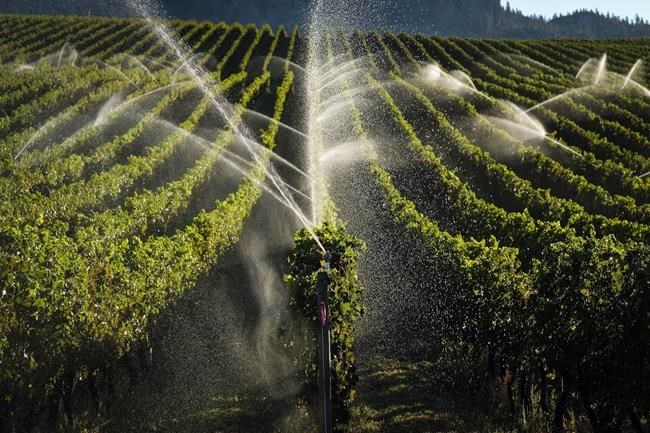KELOWNA, СŔ¶ĘÓƵ — Wine growers in British Columbia say a bitter cold snap last winter has devastated vineyards, causing irreparable damage to almost half of the province's planted acreage that may force some producers out of business.
The fallout from last December's freeze, that saw temperatures in the Okanagan dip to minus 30 C, has the potential to cut this year's grape and wine production by between 39 per cent and 56 per cent, with direct revenue losses of up to $145 million, said Miles Prodan, Wine Growers СŔ¶ĘÓƵ president.
The extent of the weather damage was only realized this spring when growers were able to examine their budding vines, he said Thursday at a news conference at a Kelowna winery.
The impact would be severe, immediate and long-lasting, he said, hitting harvests, output, revenue and jobs.
"Following bud break, our industry-wide research concluded that our worst fears were realized with a 54 per cent reduction in 2023, and 45 per cent of total planted acreage suffering long-term irreparable damage" he said.
Prodan said about 22 per cent of vines need to be replaced.
"We're not Chicken Little (when we say) the sky is falling," he said in an interview. "The sky is falling. It's a pretty common discussion that there will be people closing their doors."
An industry-commissioned survey concluded the impact of the "climate-change related" freeze could result in the loss of 381 jobs, representing a 20 per cent reduction in the industry's workforce, Prodan said.
The grape varieties that sustained the greatest weather-related losses include those used to make Syrah, Merlot and Cabernet Sauvignon, he said, adding growers suggest people stock up on СŔ¶ĘÓƵ wines for the next 24 months.
"It looks as though we are … only going to have 50 per cent of our crop from previous years," Prodan said. "Not only are we down 30 per cent overall over the last several years, but this year, specifically, we're down 50 per cent."
The industry is appealing to both the provincial and federal governments for additional support, including a dedicated agriculture recovery grant for crisis relief.
Prodan said the industry is also calling for the СŔ¶ĘÓƵ crop insurance program to cover climate-change related events such as December's freeze.
This report by The Canadian Press was first published June 22, 2023.
The Canadian Press




